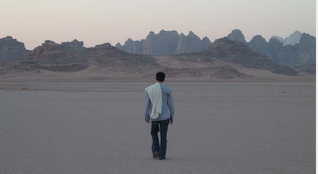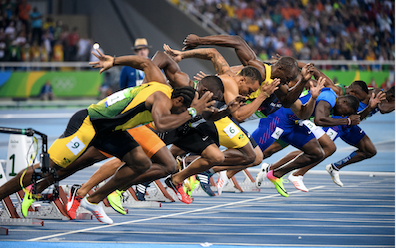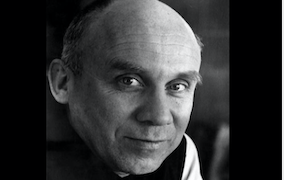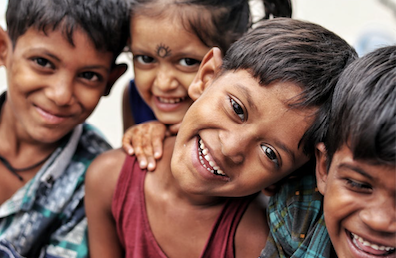Not Knowing Is Most Intimate
Practitioners of Zen Buddhism wrestle with a teaching story of a master questioning a pilgrim:
Dizang, the teacher, asks the pilgrim Fayan, “Where are you going?”
Fayan says, “Around on pilgrimage.”
Dizang then asks, “What is the purpose of pilgrimage?”
Fayan replies, “I don’t know.”
Dizang responds, “Not knowing is most intimate.”

photo courtesy Stingy Traveler
In this short exchange, a practice in Zen called a koan, the teaching is designed not to help the student somehow figure out the correct answer, but to guide the student to allow the question to somehow figure out the student. Providing a way to approach this koan, writer / poet / Zen priest Norman Fischer writes that, as best as we can manage, all experience should be met with ‘empty hands,’ so that ‘every moment of encounter’ holds the possibility of our being reached. Fischer warns of the risk ‘knowing’ entails, “ … without not knowing, the world would never be.”
“The world would never be’ sounds dire, maybe a little melodramatic, but consider how limited your experience of the world would be if it was made up solely of what you already knew. There’d be no room for surprise, wonder and mystery would be missed, leaving an aridity too awful to contemplate. Leo Tolstoy, in War and Peace, writes that the highest degree of human wisdom occurs when we accept that “We can know only that we know nothing”
Now this isn’t an indictment of knowledge but an assertion that something more is asked of us in every moment of our lives, if we truly want to embrace the depth the astonishing and singular being each of us is. So much wisdom, from Jesus to Dr. King, from Aquinas to Hafiz, from Nietzsche to Emily Dickinson, pleading with us to recognize how fleeting and precious this life of ours is; that it’s our one and only shot at being our singular self, and to waste even a moment of it is to squander a great gift. When we hold on to things we ‘know’ at the expense of what’s unfolding in the moment, it’s tragic, like being left in the starting blocks when we could have run the race of our lives.

photo courtesy Joe McNallyblog
Thomas Merton, Trappist monk, writer, and poet, describes what’s required of us to meet the demands this sense of immediacy makes on us:

“You do not need to know precisely what is happening, or exactly where it is all going. What you need is to recognize the possibilities and challenges offered by the present moment, and to embrace them with courage, faith and hope.”
Willingly setting aside the things we know for the ‘possibilities and challenges offered by the present moment’ appears to put us at a disadvantage. After all, we know an awful lot, and use our knowledge for good things, working, planning, and arriving at deep insights being just a few. But these are about us, and as noble a thing as each of us is, life is bigger and has much more in store for us –– if we’re open to it. This, I believe, is why Merton felt we needed courage, faith and hope when sticking ourselves out on such a limb. Without our hard won knowledge, the record of our accomplishments and the accumulated wisdom of our years, absent all that, what have we to fall back on when the ‘possibilities and challenges’ present themselves.
The short answer is not much, and that’s just how life would have us engage with her. If I can find the courage to meet with the present as the pilgrim Fayan, answering “I don’t know,” to what may be unfolding, I’ve chosen to have nothing to fall back on. I’m engaging with life unarmed, unadorned, unmasked and uncomfortable –– in other words, open and vulnerable. And having set aside for the moment what I know, I’ve made myself available to what’s about to be revealed.
In such a moment, the revelation itself becomes teacher, and I student, or to put it another way, the present moment is the subject in this exchange and I become its object. In the ordinariness of our lives this is what holy looks like. The moment could be an experience, say of some natural wonder that bowls me over by its beauty and power. The moment could be an individual, someone whose presence and singular story inspires me to cherish the mystery and wonder held there. In each case, having been met by something previously unknown, I’m made different, humbled by the abundance of the world, and moved to compassion by the privilege of the encounter.
As life so often does, the present moment requires a decision. Can you risk setting aside what you know and instead place your trust in who you are, trusting it’s in this willingness to engage with life undefended that transforms not knowing into intimacy. To be undefended says a couple of things about you. The first is a statement of intention. You have made the choice to risk all, setting aside all the ways you might hide behind your vast and impressive knowledge to free yourself for the moment. The second is a statement of trust. Being undefended as you engage with the present declares the risk you have taken on is being done consciously, because who you are –– having set aside your knowledge, your accomplishments, and your honors is so much more than simply enough, but worthy.
Trusting, believing in your essential worthiness opens your eyes to see how indispensable you are for the world to be whole, otherwise …“the world would never be.” No pressure, but Psalm 139 wants you to realize how significant your role is, making this unequivocal value statement about you ”… for I am fearfully and wonderfully made.”

photo courtesy Harsha Vardhan
That’s right, that’s you who is fearfully and wonderfully made. Breathe that, let it sink in, because intimacy with the truth of yourself provides all you need for intimate relationship with every moment of your life.
All this is possible through intimacy with and acceptance of ourselves, making us courageous, and thankfully, freer. We meet life with equanimity and a healthy dose of humor, for no matter what she has in store for us our ‘truth has set us free.’ Free to love, to listen, to see, touch, laugh and share all of us with all of life. No longer in need of our armor, no longer needing to rely on anything more complicated than what already resides in our hearts, we’re free to be surprised by the present moment and ready to engage with her and her gifts.